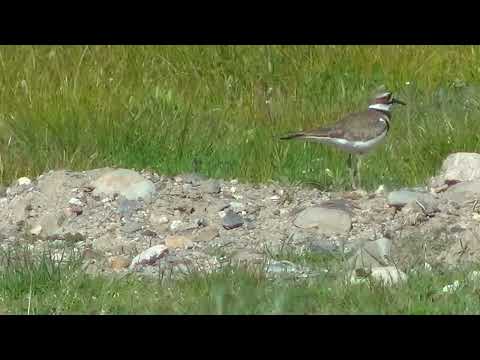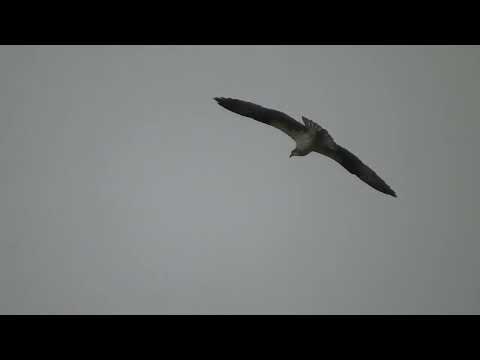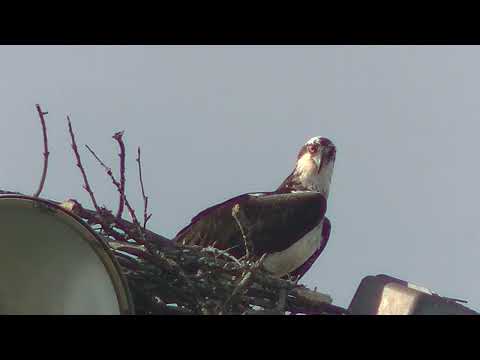Gerritt: The closing of Morley Field is illegal
Morley Field is the only park in the neighborhood and the only park in a ten minute walk for most the residents, as well as the only public access to the Moshassuck River as it flows through the entire length of Pawtucket. Unfortunately it has also been the longstanding policy of the City of Pawtucket to neglect the maintenance of the field so for several years it has been rather run down, though still widely used.
October 13, 2022, 2:00 pm
By Greg Gerritt
The following is an open letter from Greg Gerritt, Watershed Steward for the Moshassuck River and member of Friends of the Moshassuck, to the Rhode Island Department of Environmental Management (DEM) and the United States National Parks Service (NPS) about the City of Pawtucket’s plan to sell Morley Field, the only green space in an environmental justice neighborhood in Pawtucket’s District 5, so that it might be paved over into a parking lot.
I am writing in regards to Morley Field, a five-acre park in Pawtucket, Rhode Island. I have written to you previously about this site at 94 Moshassuck Street in the Woodlawn neighborhood of Pawtucket and how I, representing Friends of the Moshassuck, the Rhode Island Rivers Council recognized watershed organization for the Moshassuck River which borders the park, and many other members of the community, oppose the selling of Morley Field for use as a parking lot for a warehouse being developed on a neighboring, former industrial site.
But I am writing again because while it is likely illegal for the City of Pawtucket to sell the site for a parking lot, the city has both closed the park, and made it unfit for play, much to the detriment of the community, despite having never formally applied for permission to any of the bodies that must approve a sale. So I am writing to you to ask your help in getting the park reopened and remediated sooner rather than later, because based on recent actions by the City of Pawtucket, it seems they are hell bent on selling the park and therefore will keep it closed for much longer than necessary in order to continue in their fantasy that the State legislature in Rhode Island and the DEM/NPS will somehow violate the law and ignore the environmental justice principles that must be centered in 21st century environmental and community redevelopment work.
Morley Field is a five acre field, designed to be used for baseball and football, and more recently lots of soccer. Created in the 1970s based on a two acre gift of land to Pawtucket from Mr. Morley and three acres purchased and developed with funds from the Land and Waters Conservation Fund. It sits between two roads that dead end at the Moshassuck River behind a shopping plaza right at the city line between Providence and Pawtucket in a neighborhood that is industrial, with running factories, converted mills, and abandoned land/derelict mills adjacent to a low income neighborhood of mostly triple-deckers primarily inhabited by People of Color. Morley Field is the only park in the neighborhood and the only park in a ten minute walk for most the residents, as well as the only public access to the Moshassuck River as it flows through the entire length of Pawtucket. Unfortunately it has also been the longstanding policy of the City of Pawtucket to neglect the maintenance of the field so for several years it has been rather run down, though still widely used. Despite it all it is still a wonderful place with Osprey nesting in the light towers.
In some ways the destruction of the park is a comedy of errors, nearly all of the errors committed by the City of Pawtucket and its employees. I guess some of their confusion relates to the fact that the park is made up of two parcels. One was gifted to the city by Mr. Morley and the second was acquired with Land and Waters Conservation Funds (LWCF). At several public hearings that I and many folks in the community attended the City Director of Planning and the City Solicitor stated that they thought there would be no problem selling the land and replacing the park with one on the far side of the Oak Hill neighborhood. The Planning Director stated she thought that Department of Environmental Management and the National Parks Service would have no trouble signing off on the sale and replacement despite the proposed replacement being over the hill and in a neighborhood with much different demographics that already has several parks. But even so, why was there no thought about the idea of waiting until the sale was complete before destroying the park with test pits, especially in light of the requirements for LWCF funded parcels that are cited in the appendix about the necessity of keeping parks open until permission is granted to do something else.
My guess is that the Planning Director had no understanding of how the community would react to the sale, nor to how the world has changed in our understanding of environmental injustice, nor our understanding of the importance of parks in low income neighborhoods, and how that would likely affect any discussion of the usefulness of the land along the Seekonk River as a replacement for a park in Woodlawn. It should be noted that at both of the hearings I attended at least 15 or 20 community members spoke and every single member of the public including a number of residents of Woodlawn, spoke against selling off the park.
I contrast the situation in Pawtucket with the situation in Providence, in that in Providence the administration, the planners, and everyone in the community have environmental justice on the radar screen for every kind of development discussion, and that the proposal to close a park like Morley Field in one of the lower income neighborhoods would be off the table as soon as someone suggested it and everyone else looked at them like they had lost their mind. Pawtucket seems behind the times. So I am hoping that RIDEM and the NPS remind them that environmental justice is not something to be ignored and that a solution without justice for the community and a park right in the neighborhood is completely unacceptable.
The City Solicitor also made a big gaffe early on in the process. It appears, based on his statements to the City Council that the Solicitor, and the mortgage insurance company that was hired to look into it, referred to an obsolete RI law and did not look at RI General Law 45-2-6 which clearly states that parcels of land gifted to a City or Town for public recreation or athletic fields may not be sold off. There does seem to be a way to get around this law, which entails the State Legislature passing a law allowing the sale. But in this case both the State Representative and the State Senator for the district oppose the closing of the park, so passage in the legislature is a very remote possibility.
The Solicitor now acknowledges that the law against sale of the gifted parcel is clear, but it appears that the City Solicitor, the Planning Director, the Mayor, and the City Council still believe that a miracle is likely and they will get permission to sell both that parcel and the one acquired with Land and Waters Conservation Funding, and again demonstrate their desire to disinvest in Woodlawn. At the end I include an appendix with a few documents that demonstrate the City’s reluctance to admit its mistake and reopen the park, the opposition of the community to the closing of the park, and why environmental justice and political concerns make it very unlikely that the City will prevail in the short term. In other words, waiting for the unlikely permission for the City to sell Morley Field is likely to delay the whole project unless the park to parking lot conversion is written out of the deal. I also include quotes from the LWCF manual about the responsibilities of communities to keep parks open, and that neglect of a park is not a valid excuse for closing it.
If the park was open, as it should be, the community could afford to wait the process out, but with the park closed, chained, and pretty well destroyed by some preliminary testing done in mistaken anticipation of permission to sell, we now have a neighborhood with no park, and large numbers of people exercising in the dead end street in front of the park as there is nowhere else to go in the neighborhood.
It is therefore incumbent upon all of us, and especially those with the power and purse to act, to end the uncertainty, remind the City of Pawtucket that it is in violation of the law in the destruction and closing of Morley Field, and to get the park repaired and reopened as soon as possible, and then keep it open by making sure that environmental justice concerns become much more front and center in the analysis of whether communities can dispose of parks funded by the LWCF both generally and in this case. I thank you for your attention to this matter.
More coverage of Morley Field:
- Pawtucket continues plan to permanently shut down Morley Field
- Rally to save Morley Field shows opposition to paving greenspace gaining momentum
- Pawtucket moves to eliminate remaining green space in an environmental justice community
- Pawtucket has Plans to Make Two Environmental Justice Neighborhoods Green-Free









